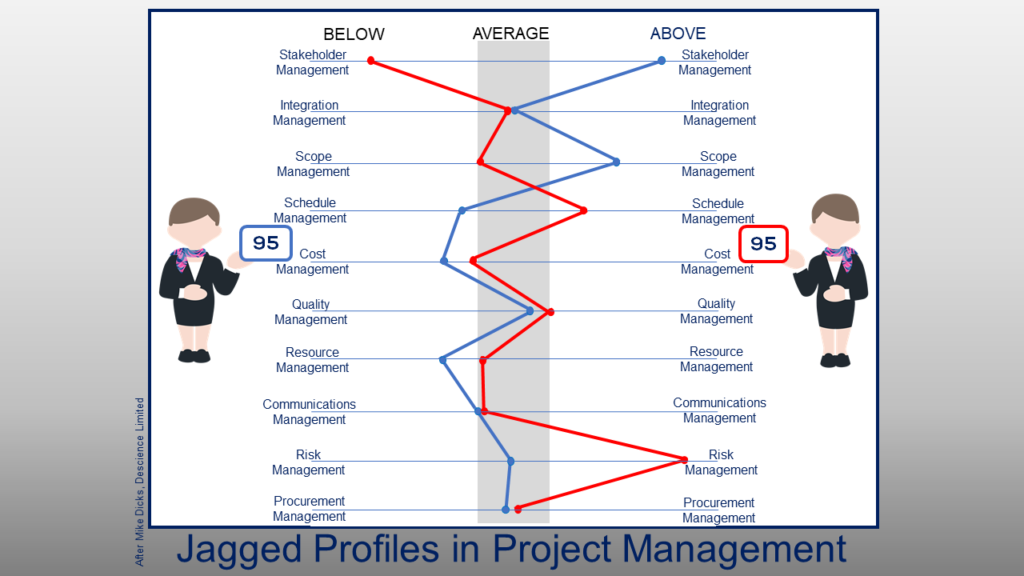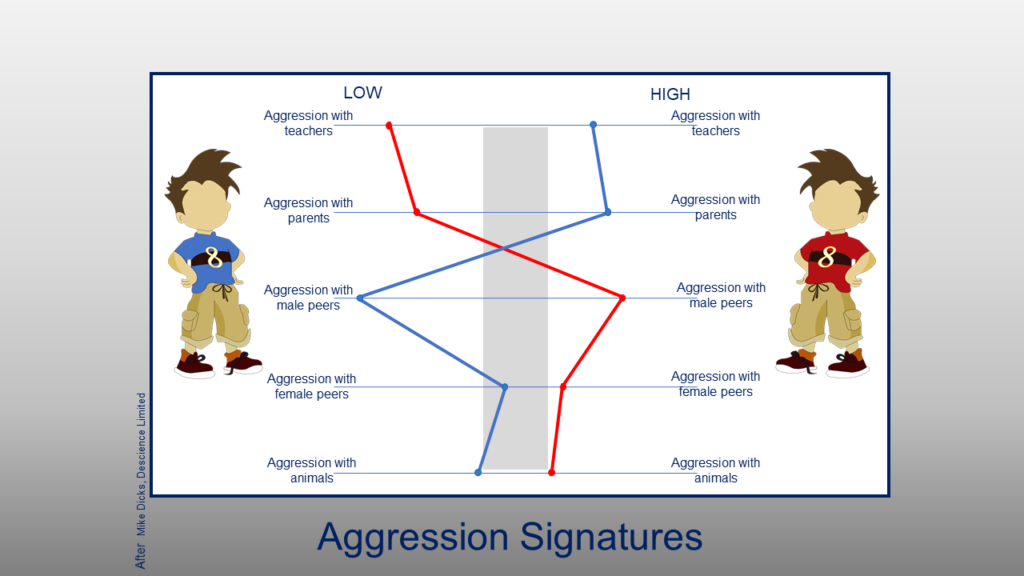Introduction
Here we go with another Average blog post.
Last week we looked at how we arrived at the average world we live in, but now it’s time to look at how it is changing and why that is important to us as individuals and project managers.
When did we realize that this Average Stuff was just, well Average?
Actually, we always knew, but it was convenient and there was no better game in town.
In the 19th and early 20th century we did not possess the mathematics or the processing capacity to analyze the data on an individual basis.
So, what changed?
Back to the Low Countries
Our story started in a Belgium recently liberated from the Netherlands, and today we return to modern day Amsterdam for our answer.
Todd Rose recounts the story of Peter Molenaar, a mathematical psychology professor at Amsterdam University, in his book “The End of Average”.
Molenaar was a confirmed averagarian for much of his career, until he had to revisit a statistical textbook when he was teaching a freshman class.
The book indicated that it would be ideal to test individuals many times, but since this was not practical it was therefore acceptable to test many people and then infer the behaviors of individuals from that of the group.
Molenaar realized that this was in conflict with the Ergodic Principle, which states that, the behavior of individuals can only be inferred from the behavior of the group if two conditions are met:
- All individuals are identical
- All individuals will remain unchanged for the foreseeable future
It suddenly became blindingly obvious that neither of these conditions were being met under the current methodology.
Molenaar call this The Ergodic Shift”.
He was inspired to undertake research into the individual, but like Quetelet he was thwarted, but rather than change professions, he changed institutions, and moved to a professorship at Penn State University where he could undertake his research.
One takeaway from Peter Molenaar is:
- Don’t Aggregate then Analyze
- Analyze and then Aggregate
Always look at the individual first then the group.1
Why is this so important?
Todd Rose shares 3 principles of the individual approach:
- The Jaggedness Principle
- The Context Principle
- The Pathway Principle
The Jaggedness Principle
One example is two project managers who share the same aggregate score in some PM test. In our average world there is a tendency to recruit, reward, recognize based on that aggregate score, assuming that they are equal, and that either would be suitable.
However, when you look at the graphic it is obvious that they are not the same, and dependent on your needs one is clearly more suitable than the other.

When we interview people, it may reveal the strengths and weaknesses.
But often our ranking system reward on limited metrics.
For example, we reward, the best closer, the highest revenue earner, but this may not provide the best long-term results for the company or the project.
Boris Groysberg in his book “Chasing Stars”, warns against this type of single metric measurement.
The success of the apparent star may be due to the efforts and the quality of the team around them. By using a single metric all the skills and talents of the team are going unrecognized.
For example, in its 64-year history the annual Ballon d’Or award, for the best footballer of the previous year, is generally awarded to a striker or an attacking midfielder. In the entire history of the award only one goalkeeper (Lev Yashin) has won. We are fixated on goals scored rather than goals prevented. Yet it is obvious that without a goalkeeper few teams would ever win a game.
The Context Principle
We have a tendency to categorize people into types or ranks and believe that this is how they will behave in every situation.
For example, an introvert will always be an introvert.
I know from my own experience that this is not true.
When I attended PMI meetings as a member I tended to be introverted and not go around introducing myself to others. However, once I started running a venue and ultimately as VP-Programs for PMI Houston, I would introduce myself to new people and generally mingle and interact. I did not change into and extrovert, but the situation changed I and I changed with it.
I am sure that we can all think of many examples.
One example given by Rose is that of two boys with aggression problems. (See Graphic) Under our normal average system both boys have the same aggression score, so the obvious answer is to administer the same standard treatment.
But, if one examines the graphic, it is clear that the context in which each boy becomes aggressive is different, and therefore should be treated in a different manner.

The Pathway Principle
Our final principle is the pathway principle, and as should be obvious by now our standard averagarian system has a tendency to, in true Taylorian fashion, believe there is one true path.
Whether it be learning to read, learning to walk, or suffering from cancer, there are multiple routes by which the learning or the disease can progress.
Some of those routes may lead to problems, or dead ends but there is no one right way.
We need to understand this and deploy the appropriate tactics to address the specific issue or process and not fall back on a one size fits all.
One patient’s cancer will be different from another, and we now know that a treatment that works on one patient may not be successful on another. Understanding that each patient is different, their context is different, and that their particular cancer has a specific path, means that the treatment must be tailored to meet these individual needs.
Conclusion
Previously standardization in industry, medicine and education did lead to improvements and efficiencies, but this meant sacrificing the individual for the overall system. In the 19th and 20th centuries this was the best we could do because we did not have the necessary technology or the understanding to address individual needs.
This is no longer the case and we need to move forward.
In their recent book “Dark Horse” Todd Rose and Ogi Ogas, encourage us to breakout of the average straight jacket, stop following standard procedures, and strikeout on the untrodden path and see where it leads.
If you are not convinced that you need to control your individual destiny, I suggest you read “The Age of Surveillance Capitalism” by Shoshana Zuboff. The tech-giants understand the power of the individual and with their algorithms are starting to control our individual lives to a greater extent.
In the Industrial Age, Taylor’s Scientific Management led to huge improvements in industrial efficiency and profitability, but it did not benefit many the individuals who labored long hours in poor conditions and lived in squaller.
There is a danger that something similar could happen in our Information Age, and all the promise of greater individual choice and freedom from Average could all be for naught.
Top Lesson for Project Managers
- There is no one right way (The PMBOK 6th Edition states clearly that processes and practices should be used “As Appropriate”)
- We are seeing a greater move to Agile
- When recruiting and developing your team remember the Jaggedness Principle.
- Remember the Context Principle when dealing with stakeholders (They are jagged too)
- How can you develop your unique project management brand? (I am belatedly harnessing my lifelong passion for history and melding it with project management to develop this blog and become The History PM)
Sign in next week for some thoughts on truthfulness and likability.
NOTES
1The End of Average
BIBLIOGRAPHY
- The end of Average – How we succeed in a world that values sameness: Todd Rose
- Dark Horse – Achieving success through the pursuit of fulfillment: Todd Rose and Ogi Ogas
- Chasing Stars – The myth of Talent and the Portability of Performance: Boris Groysberg
- The Age of Surveillance Capitalism – The Fight for a Human Future at the New Frontier of Power: Shoshana Zuboff

Fantastic article!
Thanks for the powerful reminder.
QUOTE. If you are not convinced that you need to control your individual destiny, I suggest you read “The Age of Surveillance Capitalism” by Shoshana Zuboff. The tech-giants understand the power of the individual and with their algorithms are starting to control our individual lives to a greater extent. In the Industrial Age, UNQUOTE
Jim, great series and so glad you shared it with me!
Thanks for visiting Ken.